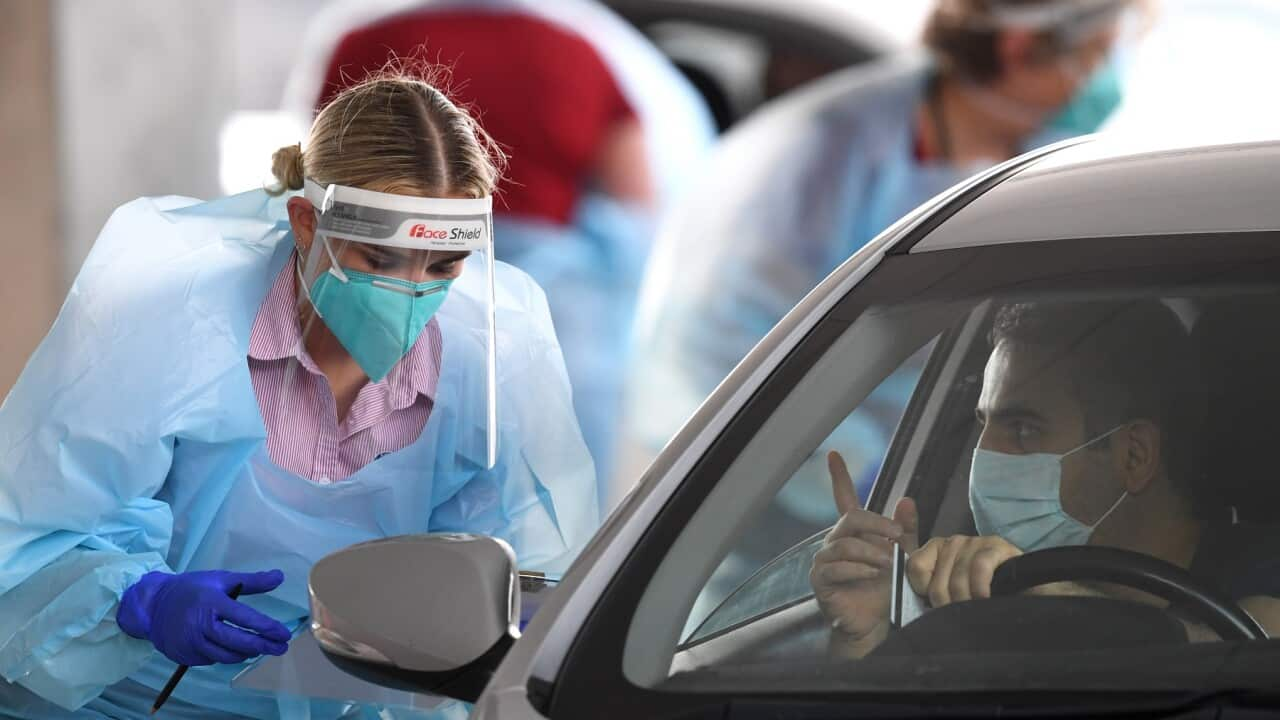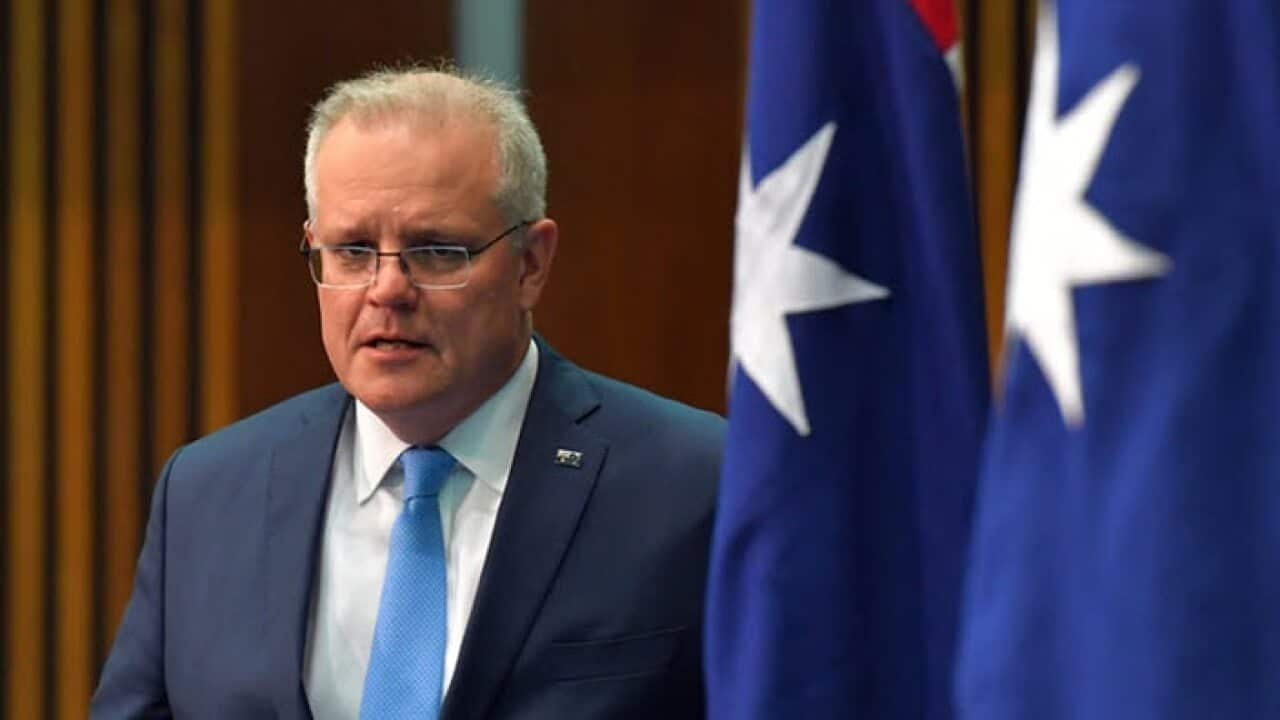Australia is ramping up its vaccination program following criticism it's lagging behind schedule, with the number of general practice clinics offering the jab expected to double from 1,500 to 3,000 this week and rise to 4,000 sites by the end of the month.
Acting Chief Medical Officer Professor Michael Kidd told reporters on Monday the push comes after four consecutive record days last week when it came to doses given.
"In the past two weeks, working with our other vaccination delivery sites and teams, our nation's GPs helped to triple the number of doses of vaccine delivered in two weeks from 250,000 a week to over 840,000 in the last week," Professor Kidd said.
"The daily and weekly numbers will continue to rise," he added.
Australia is now producing its own AstraZeneca vaccines through the CSL facility in Melbourne, though Prof Kidd was unable to say how many vaccines are being produced each week.
The new clinics to offer vaccines will include general practices, Commonwealth-funded GP-led respiratory clinics and Aboriginal health services delivering vaccines to local communities.
Pharmacists will become involved in phase 2A of the program, which is expected to commence in the middle of the year.
Professor Kidd urged people to search for their local general practice or other vaccination clinic by visiting the .
The Acting CMO said the Australian Technical Advisory Group on Immunisation was continuing to analyse across the UK and Europe.
A 44-year-old man was admitted to Melbourne's Box Hill hospital last week with a rare blood clotting disorder after receiving the AstraZeneca jab on 22 March.
He is the first Australian to have developed the illness, which has presented in small numbers of vaccinated people in the UK and Europe.
While there remained "no definitive evidence of causality" in the Melbourne man's case, Professor Kidd said it was "likely related to the vaccine".
But he reiterated that the risk of serious disease and death from COVID-19 among the mostly unvaccinated Australian population was "far greater".
"It is important to note that our colleagues overseas appear to be seeing one to two cases of thrombosis and now cytopenia reported in one million people who receive the COVID-19 AstraZeneca vaccine. By contrast, we know that the risk of death from COVID-19 remains at one to two deaths per 100 people infected," Professor Kidd said.
'Substandard, unacceptable'
Despite the vaccination program gathering pace, the government is still a long way short of its promise to vaccinate four million people by the end of March - a target missed by more than 3.3 million.
Federal Health Minister Greg Hunt has avoided putting a timeframe on when the first two phases of the vaccination program, focusing on frontline health workers and older Australians, would be competed.
Labor frontbencher Pat Conroy said the rollout had been plagued by chaos and dysfunction.
Mr Conroy said one of the largest GP clinics in his electorate was set back by several days when a shipment of vaccines was sent to the wrong address.
His electorate is home to 24,000 constituents over the age of 70, who have no clear idea of when they will receive their two doses of vaccinations.
"This isn't about politics," Mr Conroy said on Monday.
"We've got both Labor and Liberal state governments saying the federal government is delivering this in a substandard, unacceptable way."
Nationals deputy leader David Littleproud has gone from blaming the states for the pace of the vaccine rollout to scolding the European Union for blocking supply.
A shipment of a quarter of a million AstraZeneca jabs headed for Australia was blocked at the beginning of March under the EU's export control system, which attempts to manage the under-supply of vaccines.
Mr Littleproud argued Australia had been "badly let down" by the bloc.
"This is the biggest vaccination program our country has ever seen and it's important we understand what's happening with it," he told the Nine Network.
"The arithmetic is simple on this. We are three million short because of the EU, who cut us short."
Meanwhile a man infected with the South African strain of the virus is in a critical condition in the Royal Adelaide Hospital.
Chris Moye from the Australian Medical Association said it was an important reminder the coronavirus threat was not over.
"We've got to continue to do the right thing and we've got to get on with the vaccination of the community because this puts into perspective the risk is still there, particularly with winter coming," he told ABC radio.
Several states recorded more infections among returned travellers in hotel quarantine on Monday, but there were no new cases of community transmission.
With AAP
People in Australia must stay at least 1.5 metres away from others. Check your jurisdiction's restrictions on gathering limits. If you are experiencing cold or flu symptoms, stay home and arrange a test by calling your doctor or contact the Coronavirus Health Information Hotline on 1800 020 080. News and information is available in 63 languages at
Please check the relevant guidelines for your state or territory: , , , , , , ,





